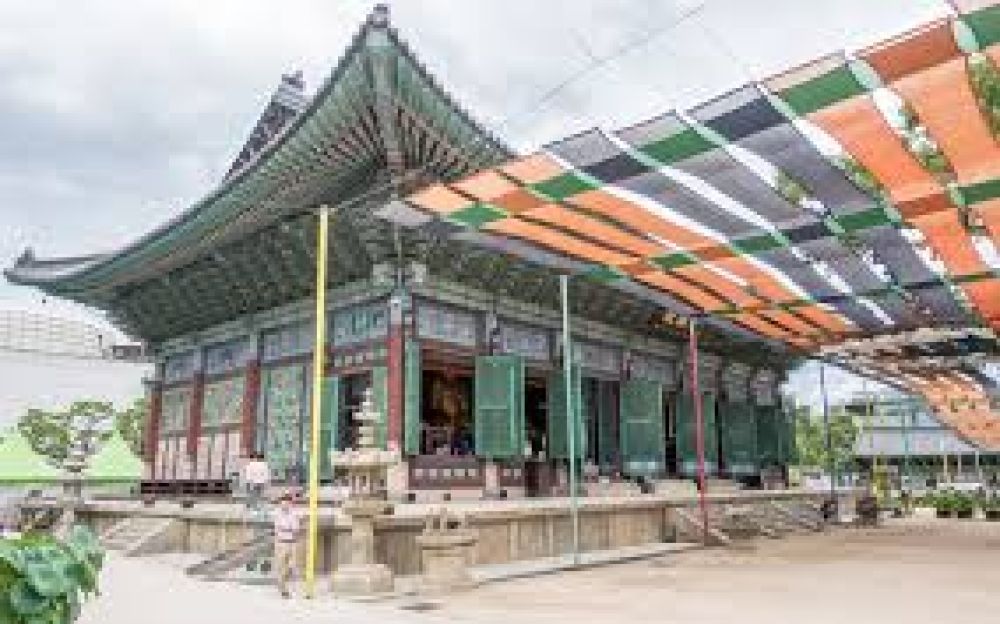

Nestled in the heart of Seoul, the Jogyesa Temple stands as a beacon of Buddhism in South Korea. With a history dating back to the late 14th century during the Goryeo Dynasty, the temple has undergone numerous renovations and names before settling on its present title in 1910. This location became the chief temple of the Jogye Order of Korean Buddhism in the late 1930s, symbolizing a revival of traditional Buddhist practices within the region at that time.
Over the years, Jogyesa Temple has developed into a pivotal destination for both pilgrims and tourists alike, showcasing the rich history and cultural significance of Korean Buddhism. The temple's vibrant trees, namely, a white pine and a locust tree that are several hundred years old, have been designated natural monuments and form an oasis of tranquility within the urban environment.
Visitors flock to the temple during Buddha's Birthday when it is adorned with colorful lanterns, making it an iconic photography spot and providing a glimpse into the spiritual heart of Korea. The celebration known as Yeondeunghoe (Lotus Lantern Festival) has been designated as an Important Intangible Cultural Property of South Korea and is a major draw for international and domestic visitors.
Tourism at Jogyesa has embraced modernity while retaining its historical charm. The temple provides temple stay programs, allowing participants to experience a day in the life of Buddhist practitioners. Its accessibility via public transportation and proximity to other tourist attractions in Seoul, such as Insa-dong and Gyeongbokgung Palace, make it a convenient stop for tourists exploring the city.
In recent times, Jogyesa Temple has been a part of the "slow tourism" trend, where visitors seek to connect more deeply with their destination through mindful and authentic experiences. This aligns well with the meditative and contemplative nature of the temple environment. With the rise of digital detox and wellness tourism, the temple's programs focused on meditation, reflection, and traditional Buddhist ceremonies have seen an increase in interest from those looking to escape the hustle and bustle of modern living.
Whether you are drawn to its historical roots or its peaceful atmosphere, Jogyesa Temple offers a profound journey into the spiritual and cultural essence of South Korea. It remains a must-visit destination for anyone interested in the religious heritage and serene beauty of this dynamic nation.